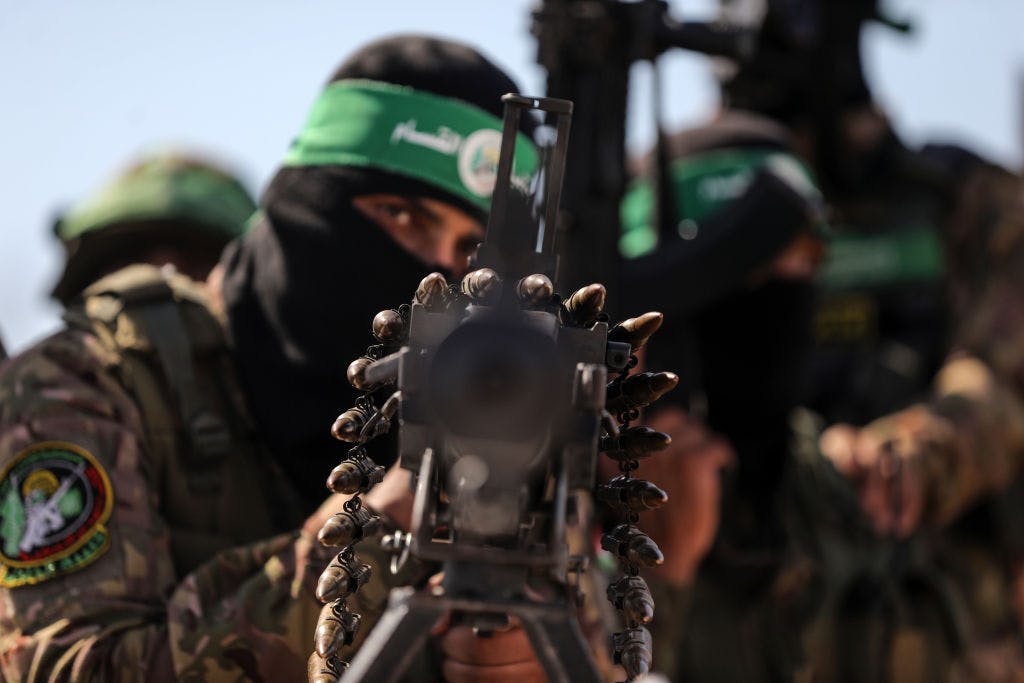Published: 7 December 2023
Last updated: 5 March 2024
Key Middle East countries all have reasons to stabilise the region but Turkey is unflinchingly pro-Hamas and the US and Israel are already divided over the ‘day after’.
How regional countries can pool their leverage to end the Israel-Hamas war (Lina Khatib, Foreign Affairs)
On the eve of October 7, each of the “Big Five” Arab states had a different relationship with Israel. Egypt and Jordan signed peace deals with Israel decades ago; the UAE had normalised its diplomatic relations with Israel; Saudi Arabia and Israel were finalising a deal to normalise ties; Qatar kept its relationship with Israel informal while also hosting the political leadership of Hamas in Doha.
Each Arab country’s approach to the Israel-Hamas war is primarily driven by concerns over its own particular priorities. Although these separate efforts are promoting the interests of each country, much more could be accomplished if the Big Five pooled their resources, focusing on coordination rather than perfect alignment. The goal should be to jumpstart negotiations involving these countries plus Hamas, Israel, and the U.S.
The Big Five would be actively involved, but with a more equitable balance of power for themselves vis-à-vis Israel and the U.S. They should insist on relaunching the peace process as a precondition for Israel’s normalisation with Saudi Arabia so as to preserve Saudi Arabia’s credibility and status. And they should insist on a political rather than a military solution for containing Hamas. This means implementing the Saudi-led proposal that came out of the joint Arab League–Organisation of Islamic Cooperation summit calling for the establishment of a Palestinian political coalition under the umbrella of the Palestine Liberation Organization. But this can only succeed if the U.S. agrees to cooperate with Saudi Arabia and the UAE on a long-term strategy for containing Iran’s regional interventions.
The ongoing war is an opportunity for Arab countries to go beyond pragmatic de-escalation with Iran and to push for the U.S. to develop a strategy that addresses Iran’s destabilization of the Middle East.
If the Big Five could see where their interests intersect, they could amplify the diplomatic gains for their individual countries while seizing a chance to stabilize the region.
Their interests in mind, some Middle Eastern powers aren't rushing to see off Hamas (Zvi Bar’El, Haaretz)
Hamas can be sure of at least one thing — its dear friend in Ankara doesn’t plan to abandon it.
“I will never be able to accept the definition of Hamas as a terror organisation, and it makes no difference what others say,” Turkish President Erdogan said in a media interview over the weekend after returning from the Dubai climate conference.
“First of all, Hamas is a reality of Palestine, it is a political party, and it entered the elections as a political party and won,” he said in remarks released by his office. In Erdogan’s view, Hamas will be an inseparable part of a negotiated solution to the Israeli-Palestinian conflict. “Destroying Hamas or refusal to include it [in a negotiated solution] is not a realistic scenario,” he explained.
The three components of Turkey's stance toward Hamas — that it is not a terror group, that it is a political party and part of the solution to the Palestinian issue – can themselves be considered an "unrealistic policy" in view of the war aims set by Israel which for now are fully backed by U.S. President Biden, who has called for Hamas to be eliminated.
One can see, in Erdogan's words, the beginning of a competition for influence in Palestine in the post-war period.
In the face of U.S. pressure on Turkey to cut ties with Hamas, or at least prevent the organisation from operating in its territory, Erdogan has remained firm. “We shape our foreign policy in Ankara, according to Turkey’s interests and the expectations of our people,” Erdogan said.
His position raises questions about whether Hamas will survive and be a significant player in Palestinian politics after the war. Those determined to eliminate Hamas, such as Israel and the U.S., cannot ignore the fact that the organisation has a broad base of operations beyond the Gaza Strip.
The battle over the 'day after' (David Horovitz, Times of Israel)
Already, there is open friction between Prime Minister Benjamin Netanyahu and the U.S. over the fate of post-war Gaza.
The Biden administration wants a “revitalised” Palestinian Authority ultimately governing the Strip as part of a two-state solution.
Netanyahu, in an extended critique toward the end of his press conference on Saturday night, declared bitterly of the PA that “I’m not prepared to delude myself and say that this defective thing, established under the Oslo Accords in a terrible mistake,” should be allowed to govern Gaza. The PA, he charged, “doesn’t fight terror, it finances terror; it doesn’t educate for peace, it educates for the disappearance of the State of Israel. That is not the group that should enter now.” And yet, he protested, “that’s what even the best of our friends suggest. I think differently. I oppose it. I think we need to build something else”.
While the U.S. has been urging Israel to at least tell it what that “something else” might be, some in the defense establishment want to minimise the talk of “the day after” altogether because they think it damages the imperative to win right now. It gives Hamas the sense that it only needs to hang on a little longer, until the dawn of that “day after”, they argue. And the debate in Israel over a post-war Gaza also revives political division — about the PA, two states and the whole long-term question of Israel’s relationship with the Palestinians.
But whatever the post-war formula may be, Israeli defense sources stress that it requires a much-elevated relationship with Egypt, whose role will be critical in preventing terror groups in Gaza from simply rebuilding their strength as the IDF pulls back.
Biden now regrets the strength of his support for Netanyahu (Simon Tisdall, Guardian)
Right now, Netanyahu is deliberately, even proudly, rejecting U.S. urgings to eschew tactics that will prospectively cause huge additional casualties in southern Gaza.
He continues to break promises not to obstruct aid supplies from Egypt. Meanwhile the army’s Orwellian QR code phone system for evacuating civilians to supposedly safe areas – apparently the best it can do in response to American pressure – is plainly unworkable amid telecoms blackouts.
More disobliging still, from the point of view of Arab neighbours and the international community, Netanyahu wants to create a permanent buffer zone in overcrowded Gazan territory. Preferring open-ended military occupation, he flatly rejects Biden’s view that the Palestinian Authority is best-placed to take charge of Gaza after the war and scoffs at talk of reviving the two-state solution.
On top of all that, he is ignoring, even courting, the risk of wider regional escalation – the nightmare Washington most fears. Since the Gaza truce ended on Friday, related violence has predictably flared anew from the West Bank and southern Lebanon to the Red Sea.
Netanyahu may calculate there is political advantage in being able to claim he “stood up” to the Americans. Biden must swiftly disabuse him of this notion – and of the bigger, pernicious idea that he can carry on prosecuting a war that collectively punishes a defenceless population, that increasingly harms US and western interests, and that is damaging to Israel’s long-term security.




